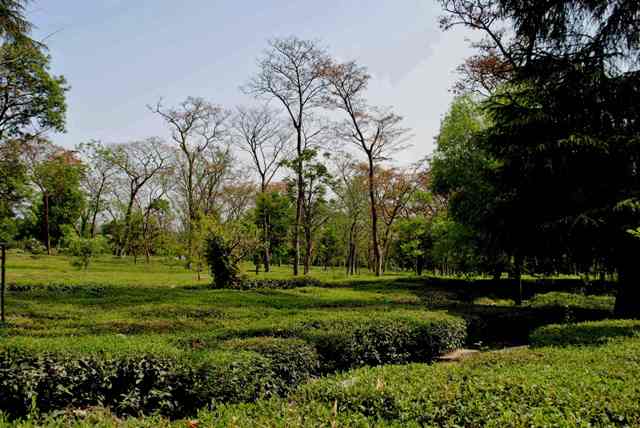Shimla: A petition by Kangra Valley Small Tea Planters Association & others that had challenged an amendment carried out in 1999 to HP Ceiling of land Holdings Act as unconstitutional and sought court protection to refrain the state from interfering with their rights to deal with tea estates in the manner they may like was turned down by the HP High Court.
Before disposing of the petition, the division bench of Chief Justice AM Khanwilkar and Justice RB Mishra on Friday held that “we find no merits in the challenge to the validity of the amended provision.”
Relying on the principal HP Ceiling on Land Holdings Act of 1972, the petitioners argued that tea estates were exempted from definition of land (as equated with lands used for agriculture purposes) and any amendments introduced were not within the scope of the state’s legislative competence.
The petitioner had particularly objected to Section 6A and Section 7A of the amendment as irrational and arbitrary as it “would inevitably violate the petitioners right to livelihood and also right to liberty”
The two sections along with Section 17 A of the amended act restricted with retrospective affect sale or transfer of tea estate land and made a provision for forfeiture and vesting of land in the state in case there are any violations of the tea estate laws.
For the state the advocate general submitted that the principal act was part of the 9th Schedule of the constitution and was not open to challenge the validity of the provision contained. He argued as the amended provisions had received the president’s assent on 29 March, 2000, they should get the same protection as the principal act.
Projecting individual hardships likely to be caused to the tea estate owners could not be the basis to invalidate a legislation, the advocate general argued before the court know.
After hearing the two sides, the court observed that the matter was limited to the question of constitutionality of the amended provisions.
Writing for the bench Justice Khanwilkar notes, “it is amply clear that, it is a provision for saving of laws dealing with acquisitions of estates.”
Referring to HP Ceiling on Land Holding Act, 1972 that came into force on 28 July, 1973 the judges observed that it was an ‘Act to consolidated and amend the laws relating to ceiling on land holdings in the state’.
Concluding that the challenge to sections of the amended act were devoid of merits, which the court observed was a composite provision noted, ‘we fail to comprehend as to how the said provision is unconstitutional’ and added that ‘it is not only a deeming provision to treat such land as surplus area and of vesting the same in the state.’
Holding the 1999 amendment as social welfare legislation the judges observed that ‘it cannot be gainsaid that the legislature is competent to enact law with retrospective effect.’
As Editor, Ravinder Makhaik leads the team of media professionals at Hill Post.
In a career spanning over two decades through all formats of journalism in Electronic, Print and Online Media, he brings with him enough experience to steer this platform. He lives in Shimla.




